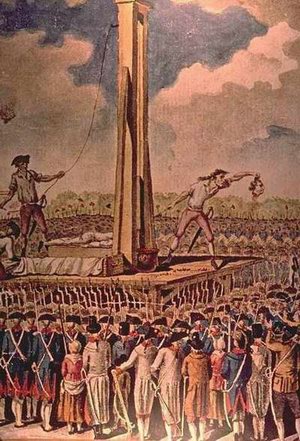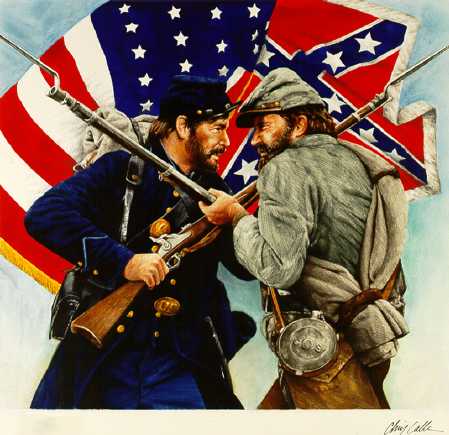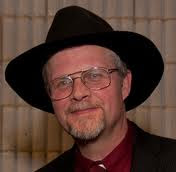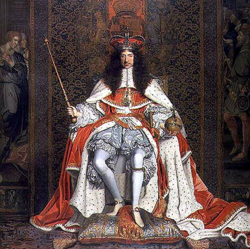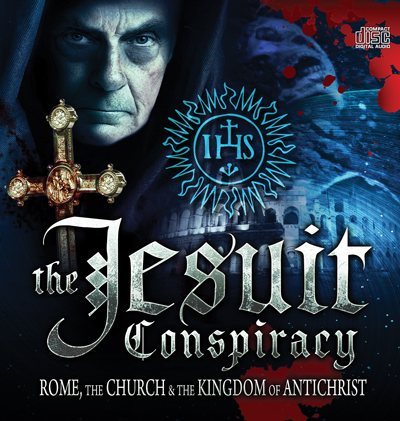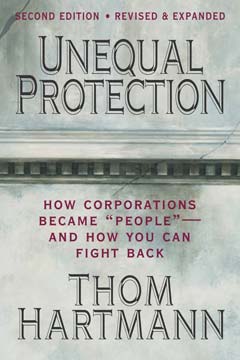 Lest I be accused of simply showing the logical connections between Hegelianism, Yankee Capitalism and Communism, I offer Mr. Sutton’s work as evidence of a historical connection as well.
Lest I be accused of simply showing the logical connections between Hegelianism, Yankee Capitalism and Communism, I offer Mr. Sutton’s work as evidence of a historical connection as well.
Having laid the foundation for my rejection of Karl Marx’s Communism and his Roman Catholic Theology Proper, I would like to now demonstrate to the reader how his Neoplatonic-Roman Catholic Dialectic fleshes out in application.
I will be initially quoting from the Manifesto of the Communist Party first published in 1848.[1] Of course, Marx does make some valid criticisms of Yankee Capitalism which I will also include.
The CM says,
“The bourgeoisie, wherever it has got the upper hand, has put an end to all feudal, patriarchal, idyllic relations. It has pitilessly torn asunder the motley feudal ties that bound man to his “natural superiors”, and has left remaining no other nexus between man and man than naked self-interest, than callous “cash payment”.”[2]
This is striking! I would not have taken Marx to be the kind to actually point this out. Truly, Yankee Capitalism has made the individual the primary concern of society and that individual is then not to see his family as his primary base of concern but himself. His life’s goal is then, not to maintain his race, his family and his religion, but to travel the earth to whatever distance necessary to follow Commerce and War. This has fragmented the old national and racial bonds between men and made life nothing else but Commerce and War. Marx has no improvement because his economic is simply a reaction to the Yankee Capitalism (Thesis and Anti-Thesis) and thus when the Yankee Capitalist is in need he looks not to his family but to the State which greatly pleases Marx. We will see these many agreements between Yankee Capitalism and Marxism.
Agreement #1 Both Yankee Capitalism and Marxism reject the primacy of the Family and Racial obligations.
The CM complains,
“A similar movement is going on before our own eyes. Modern bourgeois society, with its relations of production, of exchange and of property, a society that has conjured up such gigantic means of production and of exchange, is like the sorcerer who is no longer able to control the powers of the nether world whom he has called up by his spells. For many a decade past the history of industry and commerce is but the history of the revolt of modern productive forces against modern conditions of production, against the property relations that are the conditions for the existence of the bourgeois and of its rule. It is enough to mention the commercial crises that by their periodical return put the existence of the entire bourgeois society on its trial, each time more threateningly. In these crises, a great part not only of the existing products, but also of the previously created productive forces, are periodically destroyed. In these crises, there breaks out an epidemic that, in all earlier epochs, would have seemed an absurdity — the epidemic of over-production. Society suddenly finds itself put back into a state of momentary barbarism; it appears as if a famine, a universal war of devastation, had cut off the supply of every means of subsistence; industry and commerce seem to be destroyed; and why? Because there is too much civilisation, too much means of subsistence, too much industry, too much commerce. ”
There is too much commerce, and Communism bares a great deal of guilt in it. In an interview with the late Aaron Russo, Russo pointed out that the Rockefeller’s were behind the American Women’s Liberation movement (A Communist Movement) in order to influence the other half of the population to be involved in public work so that there would be an increase in commerce and taxes.[3] Women used to take care of the home and raise the children in order to maintain the private social order and now they are helping to feed the State and the Yankee War Machine. Do we now see how Communism and Capitalism work together? Secondly, the Southern Plantation system was the best system to compete with Yankee Capitalist Industries which we will see later. This system has also been destroyed by Communist Propaganda and the now Popular demand for equal rights. Again, Communism helps Yankee Capitalism.
Agreement #2 Both Yankee Capitalism and Marxism wanted the destruction of the Plantation and slavery.
Agreement #3 Both Yankee Capitalism and Marxism want the women working due to universal equality.
The CM complains again,
“In proportion as the bourgeoisie, i.e., capital, is developed, in the same proportion is the proletariat, the modern working class, developed — a class of labourers, who live only so long as they find work, and who find work only so long as their labour increases capital. These labourers, who must sell themselves piecemeal, are a commodity, like every other article of commerce, and are consequently exposed to all the vicissitudes of competition, to all the fluctuations of the market.”
Except in Southern Agrarianism and moreover, the absolute free labor system has still failed to stake the interest of Capital in their labor. The labor of Capital is now as disposable as a Coke Can. I deal with this in greater detail here.
The CM makes a great point,
“The less the skill and exertion of strength implied in manual labour, in other words, the more modern industry becomes developed, the more is the labour of men superseded by that of women. Differences of age and sex have no longer any distinctive social validity for the working class. All are instruments of labour, more or less expensive to use, according to their age and sex.”
Only in a society that believes in universal equality and women’s suffrage. Do we not then see how our problems continue to be sociological and not economical? This has greatly contributed to the genocide of White European peoples in the last 60 years. The modern white woman cares little for family and is now consumed with her career. They care little about having children and raising a family.[4] This has devastated our race.[5] And though the modern white man sees little significance in preserving his race, in a very short time he will be face to face with a majority colored population that does care about race and wants nothing else but to see the white race annihilated. When white people become a minority in a land they are not respected for their humanitarian efforts. They are a hated and persecuted minority.[6] Atheism and liberalism is the end of a people. It is genocide!
The CM states,
“In bourgeois society, living labour is but a means to increase accumulated labour. In Communist society, accumulated labour is but a means to widen, to enrich, to promote the existence of the labourer.”
This turned out to be a total lie. Communist society turned out to end the existence of the laborer. The problem is men are totally depraved and when all the property was given to the state who was supposed to virtuously disperse all equally, the State starved millions of its own people and massacred millions more. You see Capitalism and Communism is Thesis and Anti-Thesis. The Synthesis, the true purpose behind all, is Global Government and a massive global population reduction.[7]
Agreement #4 Global Government
The CM complains,
“You are horrified at our intending to do away with private property. But in your existing society, private property is already done away with for nine-tenths of the population; its existence for the few is solely due to its non-existence in the hands of those nine-tenths. You reproach us, therefore, with intending to do away with a form of property, the necessary condition for whose existence is the non-existence of any property for the immense majority of society.”
I would agree with this because the Yankee Capitalists practice their version of wealth re-distribution primarily by way of usury.
Agreement #5 Wealth redistribution.
The CM states,
“But you Communists would introduce community of women, screams the bourgeoisie in chorus.
The bourgeois sees his wife a mere instrument of production. He hears that the instruments of production are to be exploited in common, and, naturally, can come to no other conclusion that the lot of being common to all will likewise fall to the women.
He has not even a suspicion that the real point aimed at is to do away with the status of women as mere instruments of production.
For the rest, nothing is more ridiculous than the virtuous indignation of our bourgeois at the community of women which, they pretend, is to be openly and officially established by the Communists. The Communists have no need to introduce community of women; it has existed almost from time immemorial.
Our bourgeois, not content with having wives and daughters of their proletarians at their disposal, not to speak of common prostitutes, take the greatest pleasure in seducing each other’s wives.”
Notice, Marx does not deny that his Communism promotes community of women. His point is, yes, we believe in community of women, but this in no way means that we are INTRODUCING the idea. Now, I agree firmly that Yankee Capitalism promotes too much luxury, idle-ness and immorality. Dabney spoke to this issue in great detail from pages 301-330 in Defence of Virginia which I cataloged here. The Southern system maintained a reasonable restraint on the excessive wealth and luxury of the rich while not falling into the trap of Communism.
As a side note, I would ask the reader to think of anyone they have know who abstained from sex before marriage. It is an unheard of phenomenon in the Yankee ruled United States.
Agreement #6 Community of Women and widespread fornication.
The CM states,
“The Communists are further reproached with desiring to abolish countries and nationality.
The working men have no country. We cannot take from them what they have not got. Since the proletariat must first of all acquire political supremacy, must rise to be the leading class of the nation, must constitute itself the nation, it is so far, itself national, though not in the bourgeois sense of the word.
National differences and antagonism between peoples are daily more and more vanishing, owing to the development of the bourgeoisie, to freedom of commerce, to the world market, to uniformity in the mode of production and in the conditions of life corresponding thereto.”
Now we are getting to the heart of it. Do we not then see how Yankee Capitalism was used to end our National Sovereignty? Agrarianism reasonably preserves the independence of a land. When a people know how to live off of the land, they are free in a way the modern man cannot possible fathom. If in the case of a global or international economic collapse, an Agrarianized population could survive without massive social unrest. But this kind of life is demonized and mocked in our media and entertainment venues. Are we continuing to understand how our economic problems stem from much deeper sociological issues?
Agreement #7 Globalism-Both systems reject Genesis 9-11; Are we seeing why racialism is such a demonized idea in the West.
The CM states,
“What else does the history of ideas prove, than that intellectual production changes its character in proportion as material production is changed? The ruling ideas of each age have ever been the ideas of its ruling class.”
And this is not different with Communism. The ruling class in America shoves Communist lies and propaganda down our throats in this system. The two biggest pieces of propaganda pushed by our Communist Government is the Abolitionist propaganda against the South and Charles Darwin’s insanities. That the state controls the thinking of a people is no discovery by Communists. It is natural law, which is why the First Amendment and legislation like it is a fool’s illusion and always will be.
The CM states,
“What does this accusation reduce itself to? The history of all past society has consisted in the development of class antagonisms, antagonisms that assumed different forms at different epochs.
But whatever form they may have taken, one fact is common to all past ages, viz., the exploitation of one part of society by the other.”
And such it always will be. It is a biological reality that will never disappear. Why not then administrate it properly while keeping that exploitation as mild as it was in the South?
The CM states its core principles
“1. Abolition of property in land and application of all rents of land to public purposes.
2. A heavy progressive or graduated income tax.
3. Abolition of all rights of inheritance.
4. Confiscation of the property of all emigrants and rebels.
5. Centralisation of credit in the hands of the state, by means of a national bank with State capital and an exclusive monopoly.
6. Centralisation of the means of communication and transport in the hands of the State.
7. Extension of factories and instruments of production owned by the State; the bringing into cultivation of waste-lands, and the improvement of the soil generally in accordance with a common plan.
8. Equal liability of all to work. Establishment of industrial armies, especially for agriculture.
9. Combination of agriculture with manufacturing industries; gradual abolition of all the distinction between town and country by a more equable distribution of the populace over the country.
10. Free education for all children in public schools. Abolition of children’s factory labour in its present form. Combination of education with industrial production, &c, &c.”
With the abolition of all rights of inheritance (#3), the invidualism so indicative of Yankee Capitalism, is enshrined by the Communists. Gal 6:7’s application to families is then uprooted and rejected. #5’s affirmation of monopoly would make any Yankee Capitalist happy.
Agreement #8 The individual’s emancipation from familial or tribal responsibilities and benefits.
Agreement #9 The morality of Monopoly
In Frederick Engels’ Draft of a Communist Confession of Faith 1847 he attempts to lay down the ethical theory of the Communist movement stating in question 5,
“For example, every individual strives to be happy. The happiness of the individual is inseparable from the happiness of all, etc.”
Here Engels is espousing Teleological Ethics; more specifically Psychological Hedonism. This theory asserts that the Good is pleasure. On this view all people always desire pleasure and nothing else but pleasure. This theory is an illusion. Will the Psychological Hedonists refuse bitter medicine or a discomforting trip to the dentist to cure their ailment? Will they not suffer the pains of employment? All these do not give pleasure at the moment. If not an immediate pleasure, maybe then all people always desire or act towards a future pleasure? Clark objects,
“There are many evidences that this is not true. A drunkard may know that guzzling his liquor will make him sick and give him a headache, but he guzzles. He desires the immediate pleasure and sacrifices the pleasure of tomorrow.” (Christian View, pg. 118)
The difficulties continue for secular theories because it can never be determined how a good desire is distinguished from a bad desire. And finally, the definition of pleasure as sensation falls prey to the hundreds of criticisms Clark has made to the entire endeavor of Empiricism.
Applied to society this theory evolves into Utilitarianism. This is the ethical theory that affirms that the proper moral action is one that produces the overall happiness for the greatest number. In utilitarianism, the individual must sacrifice his own interests for the interests of the whole or the state. Clark summarizes the problem with teleological theories:
“It would be necessary to know not merely the immediate results of a given choice, but the more remote, and the still more remote into an indefinite future. It would be necessary to know the effects of the proposed action on every individual who might possibly be involved. And all these effects in their various degrees would have to be balanced against the same calculations made for each of the other proposed policies. Only after all these calculations had been completed could it be said that such and such ought to be done. But obviously these calculations cannot be completed. Therefore, a teleological system cannot conclude that one action rather than another is a moral obligation.” (Christian View, pg. 124-125)
Engels states again,
“Question 9: How did the proletariat arise?
Answer: The proletariat came into being as a result of the introduction of the machines which have been invented since the middle of the last century and the most important of which are: the steam-engine, the spinning machine and the power loom. These machines, which were very expensive and could therefore only be purchased by rich people, supplanted the workers of the time, because by the use of machinery it was possible to produce commodities more quickly and cheaply than could the workers with their imperfect spinning wheels and hand-looms. The machines thus delivered industry entirely into the hands of the big capitalists and rendered the workers’ scanty property which consisted mainly of their tools, looms, etc., quite worthless, so that the capitalist was left with everything, the worker with nothing. In this way the factory system was introduced. Once the capitalists saw how advantageous this was for them, they sought to extend it to more and more branches of labour. They divided work more and more between the workers so that workers who formerly had made a whole article now produced only a part of it. Labour simplified in this way produced goods more quickly and therefore more cheaply and only now was it found in almost every branch of labour that here also machines could be used. As soon as any branch of labour went over to factory production it ended up, just as in the case of spinning and weaving. in the hands of the big capitalists, and the workers were deprived of the last remnants of their independence. We have gradually arrived at the position where almost all branches of labour are run on a factory basis. This has increasingly brought about the ruin of the previously existing middle class, especially of the small master craftsmen, completely transformed the previous position of the workers, and two new classes which are gradually swallowing up all other classes have come into being, namely:”.
These problems are results of the Enlightenment, and the French Revolution’s rejection of Patriarchalism and its affirmation of universal equality, so pervasive in the Abolitionist destruction of Southern Plantations. Engels brings up an important issue. In Dabney’s Defence of Virgina, pages 325-326 we read the Southern reply,
“Now we emphatically and proudly admit that Southern society has not learned the frugality of New England; which is, among the middle classes, a mean, in-hospitable, grinding penuriousness, sacrificing the very comfort of children, and the kindly cheer of the domestic board, to the Yankee penates, Mammon and Lucre; and among the upper classes a union of domestic scantiness and stinginess with external ostentation and profusion ; a frugality which is “rich in the parlour, and poor in the kitchen. The idea of the Southern planter is the rational and prudent use of wealth to procure the solid
comfort of himself, his children, and his servants at home, coupled with a simple and unostentatious equipage abroad, and a generous hospitality to rich and poor. But we fearlessly assert, and will easily prove to every sensible reader, that slavery was peculiarly favourable to the economical application of labour, and of domestic
supplies and income. The attempt to carry the freehold tenure of land down to the yeomanry, subdivides land too much for economical farming. The holdings are too small, and the means of the proprietors too scanty, to enable them to use labour-saving machines, or to avail themselves of the vast advantages of combined labour. How can the present proprietor of a farm of five or ten acres in France or Belgium, afford a
reaper, a threshing-machine, a three-horse plough, or even any plough at all ? The spade, the wheel-barrow, the donkey, and the flail, must do his work, at a wasteful cost of time and toil. But the Southern system, by placing the labour of many at the direction of one more cultivated mind, and that furnished with more abundant capital, secured the most liberal and enlightened employment of machines, and the most convenient “division of labour.” Moreover, the administration of the means of living for the whole plantation, by the master and mistress, secured a great economy of supplies. The mistress of Southern households learns far more providence, judgment and method in administering her stores, than are possessed by free labourers or by blacks. The world over, those who have property are more provident than those who have none. For, this providence is the chief reason why they have property; and the improvidence of the poor is the cause of their being poor. But even if the slaveholders had no more of these qualities, all can see that an immense saving is made by having one housekeeper for ten families, with one kitchen, store-house, and laundry, instead of ten kitchens, ten store-houses, and ten varying administrations of stores. A smaller supply of provisions secures a greater amount of comfort to all, and a great saving of labour is effected in preparation of food, and housekeeping cares. A system of slave labour is, therefore, more productive, because it is more economical.
In all this argument, the anti-slavery men keep out of view a simple fact which is decisive of the absurdity of their position. They shall now be made to look it in the face. That fact is, that in free States, a large portion of all those who, from their moneyless condition,ought to pursue manual labour, are too lazy to do so voluntarily. But they must live, and they do it by some expedient which is a virtual preying on means of the more industrious, by stealing, by begging, by some form of swindling, by perambulating the streets with a barrel-organ and monkey, or by vending toys or superfluities. Their labour is lost to the community; and their maintenance, together with their dishonest arts and crimes, is a perpetual drain from the public wealth. But slavery made the lazy do their part with the industrious, by the wholesome fear of the birch. Slavery allowed no loafers, no swindlers, no ” b’hoys,” no “plug-uglies,” no grinders of hurdy-gurdies, among her labouring class.”
In the Southern system the Planation provided a strong competitor for Yankee Capitalism. A Plantation using many slaves with community of property could afford the large industrial machines. This preserved agrarian society which kept us off of the globalist grid, while at the same time allowed us to enjoy and benefit from modern technology. Do you see what happens when we think we are smarter and holier than God? Now, the unemployed Yankee black free laborers which Dabney complained of, are now the modern day gangsters, drug dealers, and organized crime syndicates.
During the so-called Great Migration[8], blacks left the South in mass and moved into Yankee cities where they found little hope of lawful sustenance. In response, they formed themselves into Gangs.
The United States Department of Justice’s National Gang Center Bulletin, in a piece, HISTORY OF STREET GANGS IN THE UNITED STATES by James C. Howell and John P. Moore says,
“The second period of gang growth in Chicago commenced in the 1930s as the result of a steady migration of Mexicans and blacks to northern cities. Black immigrants arrived first, following the U.S. Civil War, to escape the misery of Jim Crow laws and the sharecropper’s life in the southern states. Between 1910 and 1930, during the “Great Migration” of more than a million blacks from the rural South to the urban North for jobs, Chicago gained almost 200,000 black residents (Marks, 1985; Miller, 2008),
giving the city an enormous urban black population—along with New York City, Cleveland, Detroit, Philadelphia, and other Northeast and Midwest cities. From 1940 to 1950, the Chicago black population nearly doubled, from 278,000 to nearly 500,000 (Miller, 2008). Most of the immigrant blacks in Chicago settled in the area known as the Black Belt, a geographic area along State Street on the South Side, where abject poverty was concentrated (Wilson, 1987).
Large numbers of black workers were inspired “to leave family and friends and seek their fortunes in the North” (Marks, 1985, p. 5). But they faced formidable challenges. Many observers thought the black migrants were unqualified for the upward mobility paths that white immigrants had used in Northeast cities. However, “the reason for non-assimilation of Black migrants into American society was not because Blacks were non-urban or unskilled. It owed substantially… to racial segmentation of the labor force structured to keep them at what they had been recruited for, a source of cheap labor” (Marks, 1985, p. 22).
The origins of Chicago’s serious street gangs can be traced to blacks’ disproportionate residency in socially disorganized inner-city areas, dating back to the period between 1917 and the early 1920s (Cureton, 2009).12 “As more and more Blacks populated
Chicago, there was an increase in delinquency among Black youth as well… As one might anticipate, these activities invariably led to Black youth hanging out together and forming cliques, major ingredients for the formation of street gangs” (Perkins, 1987, p. 20). In addition, “athletics played an important role in the development of early Black street gangs” (p. 21). The games fueled conflicts between rival teams. By the mid-fifties, Black street gangs “began to vent their frustration and perpetrate violence against the Black community.” (Pages 6-7)
As for their impact today, the FBI’s, 2011 National Gang Threat Assessment – Emerging Trends[9] states,
“Gangs are responsible for an average of 48 percent of violent crime in most jurisdictions and up to 90 percent in several others”.
This is not to imply that all Gangs are black but the point I think is clearly made. The Yankee Abolitionism failed miserably if it was ever meant to succeed and our predictions of how Abolition would morally and socially affect the blacks has been fully vindicated.
http://blackracismandracehatred.blogspot.com/
http://bjs.gov/content/pub/pdf/htus8008.pdf
http://www.bjs.gov/content/pub/pdf/hc0309.pdf
Englels,
“Question 16: How do you think the transition from the present situation to community of Property is to be effected?
Answer: The first, fundamental condition for the introduction of community of property is the political liberation of the proletariat through a democratic constitution.”
Now this is an important issue to discuss. Did the Protestant Reformation and the Scottish Covenanters establish Democracy in their rejection of the Divine Right of Kings? No.
I deal with this in my A Treatise on Ethics and Politics pages 7-10.[10]
Engels,
“Question 21: Will nationalities continue to exist under communism?
Answer: The nationalities of the peoples who join together according to the principle of community will be just as much compelled by this union to merge with one another and thereby supersede themselves as the various differences between estates and classes disappear through the superseding of their basis — private property.”
Here we see the clear Communist agenda behind Abolition and the 20th century Civil Rights movement. It is then, no surprise that the first major author to use the word “Racist” was a Communist named Leon Trotsky.[11] The Bible clearly teaches against a general mingling of the races.[12] If you think this is Southern white racist propaganda I refer you to Frederick Engels’ The Principles of Communism 1847 where he states,
“In antiquity, the workers were the slaves of the owners, just as they still are in many backward countries and even in the southern part of the United States.”[13]
The so called Civil War was nothing short of a Communist Revolution as I have cataloged in detail.[14]
Communism truly is the Economic Theory of Big Industry. Engels says,
“That big industry, and the limitless expansion of production which it makes possible, bring within the range of feasibility a social order in which so much is produced that every member of society will be in a position to exercise and develop all his powers and faculties in complete freedom.”[15]
Firstly, the paradox in this all, is that Industrialism was proved to provide an inferior standard of living than Southern Agrarianism for the working class. Robert Fogel’s Time on the Cross states,
“Data in the 1850 census suggest that the economic condition of the average free northern Negro may have been worse than that of the average free negro in the South.”[16]
And again,
“The material (not psychological) conditions of the lives of slaves compared favorably with those of free industrial workers.”[17]
And again,
“U.S. Slaves had much longer life expectations than free urban industrial workers in both the United States and Europe.”[18]
Secondly, Engels appeals to absolute freedom. This brings me back to my primary objection to Marxism’s Metaphysics and Anthropology which I wrote earlier.[19] This system is inherently Luciferian. All over Marx and Engels, you will find this obsession with “Freedom”. Engels states in our present consideration,
“The slave frees himself when, of all the relations of private property, he abolishes only the relation of slavery and thereby becomes a proletarian; the proletarian can free himself only by abolishing private property in general.” (7)…
“The handicraftsman therefore frees himself by becoming either bourgeois or entering the middle class in general, or becoming a proletarian because of competition (as is now more often the case). In which case he can free himself by joining the proletarian movement, i.e., the more or less communist movement.” (9)…
“Big industry, freed from the pressure of private property, will undergo such an expansion that what we now see will seem as petty in comparison as manufacture seems when put beside the big industry of our own day.” (20)…
“Education will enable young people quickly to familiarize themselves with the whole system of production and to pass from one branch of production to another in response to the needs of society or their own inclinations. It will, therefore, free them from the one-sided character which the present-day division of labor impresses upon every individual. ” (20)
Marx and Engles are fundamentally concerned about keeping man free from any sort of social determinism. The paradox in it all, and this is right in keeping with its Hegelian roots, is that this “freedom” is socially established with the cruelest of compulsions and ends up “freeing” man by stripping him of all that it is to be a person. It dissolves his personality and humanity into a social collectivist monad. As soon as the Protestant Reformation was established in England, there was a huge Cultural explosion with the Elizabethan Era. And then with the Treaty of Westphalia the Western World was brought into the modern period and with it, the greatest Western literature and music ever composed.
What did Communism produce? Nothing but death! No one worthy of note! No Shakespeare, no Bach, no Rembrandt.
Communism has unlocked the gates of hell. Just to stick with the labor aspect, under today’s Capitalist-Communist Hegelian Dialectic we have child slave labor with the Walmart-China connection, a huge world-wide industry in trafficked Sex Slaves, and a massive Prison slave system, which said prisons are now privately owned![20] Yankee Capitalism indeed!
Just like in England, after the death of Oliver Cromwell, we have a pro-Jesuit Charles II-like Government, all the more willing to spread immorality and gross persecution upon Anglo Protestantism. I have cataloged the gross immorality in our country here, here and here. To add another staggering statistic, a recent CDC Fact Sheet, Incidence, Prevalence, and Cost of Sexually Transmitted Infections in the United States states,
“CDC’s new estimates show that there are about 20 million new infections in the United States each year, costing the American healthcare system nearly $16 billion in direct medical costs alone.”
Communism’s racial policy has also unleashed an inquisition upon the Anglo and European peoples:.
http://blackracismandracehatred.blogspot.com/
http://bjs.ojp.usdoj.gov/content/pub/pdf/htus8008.pdf
http://www.bjs.gov/content/pub/pdf/hc0309.pdf
Take these Social results of Communism along with their Southern inquisition[21] and their many 20th Century Inquisitions [22], I wonder why the modern civilized man even allows these people rights of citizenship and assembly. Could it be because he himself is a Communist but doesn’t have the guts to take it consistently? Could it be that the modern man will have no other choice but to return to Southern Agrarianism for his survival and emancipation from a Global Empire? Could it be that the South will rise again? The South MUST rise again.
[6] http://www.genocidewatch.org/southafrica.html; http://olivianus.thekingsparlor.com/concerning-roman-catholicism/the-jesuit-inspired-boer-genocide-in-south-africa; http://www.youtube.com/watch?v=ajPJ9OD7OfQ; http://www.youtube.com/watch?v=Ims4r1fCExY;
[10] https://sites.google.com/a/thekingsparlor.com/the-kings-parlor/a-treatise-on-ethics-and-politics
[12] https://eternalpropositions.wordpress.com/2013/01/01/a-biblical-defense-of-racialism/; https://eternalpropositions.wordpress.com/averting-the-coming-race-war/
[14] https://eternalpropositions.wordpress.com/2013/02/08/the-union-army-freedom-fighters-or-communist-thugs/
[16]http://books.google.com/books?id=ScpPBinpzwoC&printsec=frontcover&dq=Robert+Fogel%E2%80%99s+Time+on+the+Cross&hl=en&sa=X&ei=TLgpUZXRFuLo2AWF-4DABA&ved=0CDUQ6AEwAA#v=onepage&q&f=false; Pg. 244
[17] Ibid., 5
[18] Ibid., 126
[19] https://eternalpropositions.wordpress.com/2013/03/28/the-root-of-karl-marxs-dialectic-the-filioque-heresy/
[20] http://en.wikipedia.org/wiki/Prison–industrial_complex; http://www.youtube.com/watch?v=6tJR81BWe5I; http://www.youtube.com/watch?v=HfJvWL_BPO0; http://www.youtube.com/watch?v=eWbI3ZzKyN8
[21] https://eternalpropositions.wordpress.com/2013/02/26/the-end-of-the-antebellum-south-the-mother-of-all-american-conspiracies-part-7-war-crimes-against-southern-civilians/
 Samuel Clark said in his Modest Plea,
Samuel Clark said in his Modest Plea,






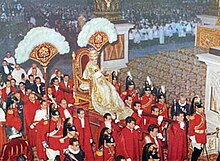



-1-.jpg)

